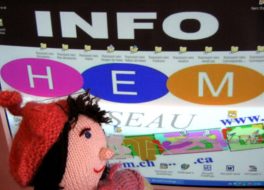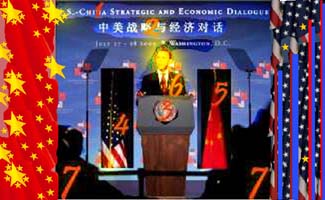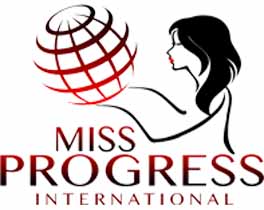
Turkish Prime Minister opens ITU Plenipotentiary Conference – Antalya meeting to provide future direction and new leadership to Union
Antalya, Turkey, 4 November 2006 — The 17th ITU Plenipotentiary Conference opens Monday at the Vega Convention Centre in Antalya, Turkey. The event, which will run until 24 November, is expected to attract some 2 000 participants, including 80 ministers, from over 150 countries representing both government and the private sector as well as regional and international organizations.
The Conference organized by the International Telecommunication Union and hosted by the Telecommunication Authority of Turkey, will be opened by the Prime Minister of Turkey, His Excellency Mr Recep Tayyip Erdoğan.
Setting the course
The Plenipotentiary Conference, which is held every four years, decides on the strategic direction of ITU and develops new policies and recommendations that will shape the worldwide growth and development of telecommunications and information and communication technologies (ICT) in the light of changes in the industry and the needs of the membership.
In doing so, the Conference will adopt measures to bridge the digital divide and improve access to the internet. The ITU Strategic Plan, which the Conference is called upon to adopt, outlines the Union’s orientations, goals and priorities for the period 2008-2011, and links them to as many as sixty outputs to fulfil the overall objectives of the Union (see www.itu.int/plenipotentiary/2006/newsroom/background/stratplan/index.html)
The Conference also has the task of deciding on the Union’s Financial Plan that will provide the resources needed to meet the goals and deliverables set out in the Strategic Plan. Discussions on this front are expected to fuel heated debates given the pressure to implement new commitments made by the membership at recent global and regional conferences on the one hand and a level of income expected to be at best based on zero real growth or zero nominal growth. Cutting the cloth according to the resources available will call for a balancing act. (see www.itu.int/plenipotentiary/2006/newsroom/background/budget/index.html)
Elections
One of the main tasks before the delegates will be to elect the Union’s top executives who will lead its work over the next four years. The process, which will likely begin on Thursday, 9 November, will elect the Secretary-General, the Deputy Secretary-General as well as Directors of the three specialized arms of the Union: the Radiocommunication Bureau, the Telecommunication Standardization Bureau and the Telecommunication Development Bureau. It will also elect the members of the Council and of the Radio Regulations Board.
The election of the Union’s five highest-ranking officials inevitably attracts much interest at each Plenipotentiary, and this year will be no exception with several contenders for four of the five posts.
In a major departure from previous practice, candidacies to the posts were closed on 9 October, a month ahead of the elections, bringing a new paradigm on the voting process. Meet the candidates at www.itu.int/plenipotentiary/2006/newsroom/elections/index.html.
Reforming ITU
Delegates at Antalya will consider proposals for the reform of the Union, from expanding the mandate beyond its traditional technological responsibilities to changing the name of the Union to reflect its growing responsibilities as it sets its future course to address the rapidly evolving and dynamic ICT environment.
Arising from the multi-stakeholder process pioneered at WSIS where civil society played a key role in the intergovernmental negotiations, and the need to create new partnerships to take forward the implementation of the WSIS action lines in which ITU has a lead role to play, several proposals have also been made to expand the Union’s membership by including the participation of new actors such as civil society.
Reform issues to be discussed also include streamlining the executive function of the Union which currently consists of five elective posts. Proposals have been made to revamp the federal structure of ITU with only two elected posts – that of Secretary-General and Deputy Secretary-General – instead of the current five, with a limit of a maximum of two terms in office for any of the five posts. (see www.itu.int/plenipotentiary/2006/newsroom/background/reform/index.html)
ITU and the internet
The Tunis phase of the World Summit on the Information Society recognized that the internet has evolved into a global public facility, and that its governance should constitute a core issue of the Information Society agenda. Moreover, it called for a multilateral, transparent and democratic international management of the internet, with the full involvement of governments, the private sector, civil society and international organizations.
Proposals on the table underline the fact that the internet has spawned new challenges that could threaten the security and stability of telecommunication networks. For this reason, a number of countries call for ITU to contribute constructively to the work on internet governance and advocate a stronger ITU role in enhancing network security and stability, in countering spam and in the smooth management of critical internet resources including Internet Domain Names and addresses. Proposals have also been made for the increased internationalization of the internet, in particular the ability of developing countries to participate fully in internet-related technical and policy processes.
Others call for the creation of a specific group (I2G: ITU Internet Group), within the Telecommunication Standardization Sector to coordinate the technical aspects of Telecommunication Networks that support the internet and to deal with all other technical matters related to internet governance.
When the Going Gets Tough . . .
In the long-term, the effectiveness of ITU will largely reflect the decisions taken at this critical conference. Faced with tough choices to make, the Antalya Plenipotentiary represents ITU’s best – and quite possibly last – chance to reinvent itself as a modern, relevant entity and strengthen a leading position in this highly dynamic and crucial sector.
Stay informed
Media accreditation for this event provides access to conference documents and the event photolibrary as well as press material released during the event. Journalists may cover onsite by completing the accreditation form along with the required documentary evidence to obtain credentials or may cover offsite by completing the form without the required supporting documents.
For further information, please contact : Sanjay Acharya Chief, Media Relations and Public Information ITU Tel: +41 22 730 6135 E-mail: pressinfo
In Antalya, until 25 November 2006 : Phone: +90 242 824 1046 / +90 242 824 1047 Mobile: +90 533 603 8333 About ITU





